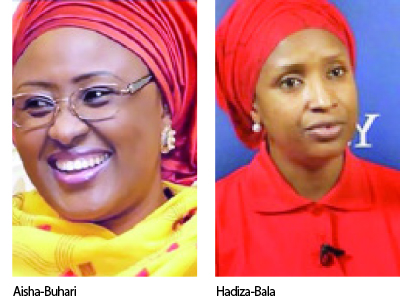In most Nigerian societies today, education of female children, what the United Nations and the world now refers to as girl-child education, has become a topic of discussion. Some societies have failed to understand the impact of girl-child education in our nation. Girl-child education is seen as a waste of time and resources by most parents where more attention is given to boys in education compare to girls. This problem has been happening and is taking the lead in some parts of Nigeria not considering the effect it will cause in the nearest future.
Studies have been conducted at different levels about girl-child education in the world in general and Nigeria in particular. According to the UNICEF, about 10.5 million children are out of school in Nigeria, which has the highest population in the number of children out of school in the world. About 60 per cent of these children are from Northern part of Nigeria and most of which are girls. These places include Jigawa, Kano, Bauchi, Borno, Sokoto and Katsina etc. These states have the highest population in which the issue of school drop-out of the girl-child is common and many girls found in these places will never step their foot into a classroom to receive formal education.
In the northern part of Nigeria, only about 54 percent of girls are literate. Those are the ones that are able to read and write and be able to participate in some of the public and available opportunities in the society compared to 98 per cent of girls in the southern part of the country, who are literate and have the adequate right to participate in opportunities available in the society. Some of these girls are forced to marry due to penury, which the parents are exposed to. Teenage pregnancy and other factors like inequality in education of girls forgetting that these girls have a great role and important role to play if given appropriate and equal educational opportunity and rights with their opposite sex.
In Nigeria for example, the 2006 census shows that women have the largest population compared to men and have the highest capacity and ability of improving the economic growth and development of the country. Societies have failed to understand that if women are educated, they are the best people that will bring about positive transformation in the society and the world at large by making our societies a better place as well as bringing forth a brighter, future generation. An educated woman sends her children to school; gives them quality education about their future, good child rearing and good nutrition. Girl-child education reduces the rate of broken homes in our societies, reduces rapid population growth by increasing per capita income, reduces the rate of poverty and reduces the rate of spending in the family.
It is important for Nigerian societies to understand that women have a pivotal role to play and must be given proper education. They are the best people that will make our society a better place. There is a popular saying that “to educate a man is to educate an individual, but to educate a woman, you educate a family or a nation.” Proper awareness and enlightenment must be given to help and improve the education of female children in order to excel and also make the world a better place.
Equal rights to education should be given and marginalization of girls must be stopped. Appropriate measures have to be taken by the government in order to balance gender equality in education as well as creating balance in all aspects, to allow women contribute their own quota for economic and societal development.
Education is the only silver and gold which every parent should give to their children as inheritance. It is an asset the children will be proud of in the nearest future, for self-defense and to be independent in every area they find themselves. Education will never fade nor be forgotten in the entire generation.
►Ishaya Dizza wrote from the Department of Education, Bayero University, Kano.

